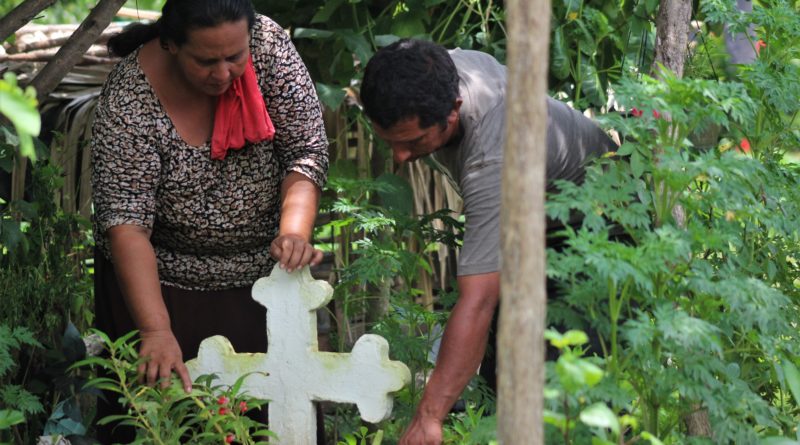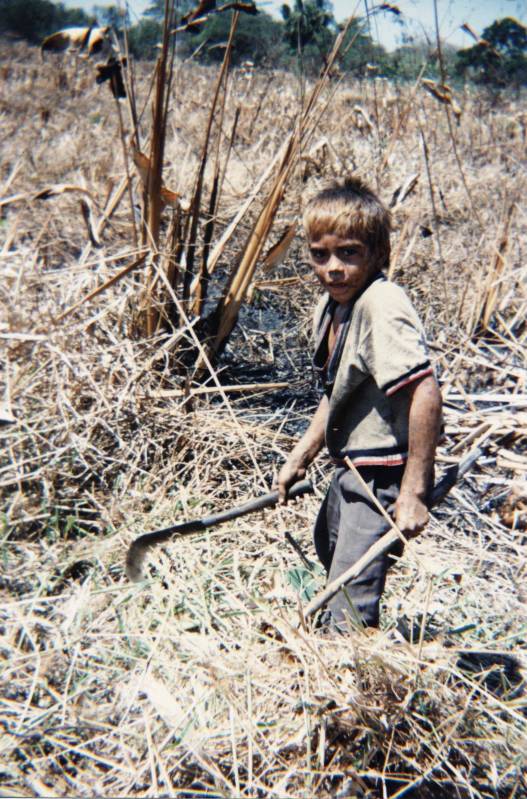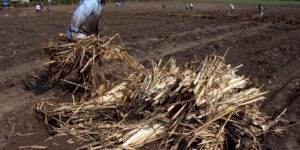Human Rights, News from Communities
The Children of San Vicente with kidney disease
The promoters of CRIPDES SAN VICENTE have informed us about Kimberly, a little girl in Tecoluca who was born less than 40 days ago with kidney problems. She shares the name with her very young aunt, who died of kidney failure during the mandatory lockdown in El Salvador. Karla Rodas wrote an article about that situation:
At a young age, Kimberly was hospitalized in the Zacatecoluca hospital. They isolated her because she suffered from a contagious disease that was transmitted only by breathing, as Mabel Santos (her mother) says. As a result of this, the girl was transferred to the Bloom Hospital where she stayed for three months. There they performed tests in which they diagnosed Chronic Kidney Disease.
Mabel Santos, a woman who works in the sugarcane activity, recounts when she realized she was pregnant with Kimberly:
“I worked in the cane fields, I hadn’t realized that I was pregnant and I continued working until I was three months pregnant. When I felt discomfort, I would sit in the pile of cane. The doctor told me that I absorbed the chemicals and poisons and the girl developed Renal Insufficiency. She was born with small kidneys”.
“At the age of 4, Kimberly suffered a lot. She died 5 months ago, exactly on March 23 (2020). She entered E.R. for the last time and no longer resisted. She had about 12 operations. There were 31 holes all over her body from the catheter application.”
“(…) Until 11 in the morning I saw her alive. At 7 PM the doctor told me that she had died. We brought her home at 2 in the morning ”.
The story of Kimberly is one of the many cases in the municipality of Tecoluca and surrounding areas of people who have lost their lives due to Chronic Kidney Disease, a disease caused by the irrigation of pesticides and poor practices in the monoculture of the sugar cane, which the governmental and environmental instances have not wanted to regulate, as stated by inhabitants of the area.
Kimberly died (in March), when the government implemented a strict lockdown due to COVID-19. At that time, the mother and father of the girl decided to hold a wake and bury her remains in the house’s courtyard.
“The environmental inspector came. They asked me for the mayor’s written permit to have her buried here. I didn’t have it, we had buried Kimberly 8 days before. They wanted to remove the girl from our house to comply with the COVID-19 protocol, I live in my own and isolated place. I can affirm that the girl died of Kidney Disease and not of COVID-19”.
“I feel like if they take Kimberly out of here, it would relive my pain. It would be to go through the same pain as when I buried her”.
The COVID-19 pandemic makes (it more difficult for) families who have a relative with Kidney Disease in areas such as Tecoluca. (They deal with) lack of transport to get to hospitals, greater economic problems due to unjustified dismissals and discrimination in health centers to focus on patients with COVID-19.
“She was born with the disease. They explained to me that Kidney Failure was mine and, during my pregnancy, the girl developed the disease, which took it away from me“, said Mabel Santos.
Mabel Santos told this reporter that she took the tests to rule out Renal Failure. She said the tests came back negative.
Despite the problems caused by the agrotoxics used in the sugarcane cultivation, there has never been an official response to this situation endangering the lives of many poor people in rural areas of El Salvador. The sugarcane industry is that strong. CRIPDES’ promoter Lurvi also informed us that Mabel got the permit that allowed her to keep her child’s remains where they were. You can see more photos and watch the entire article (IN SPANISH) here.




